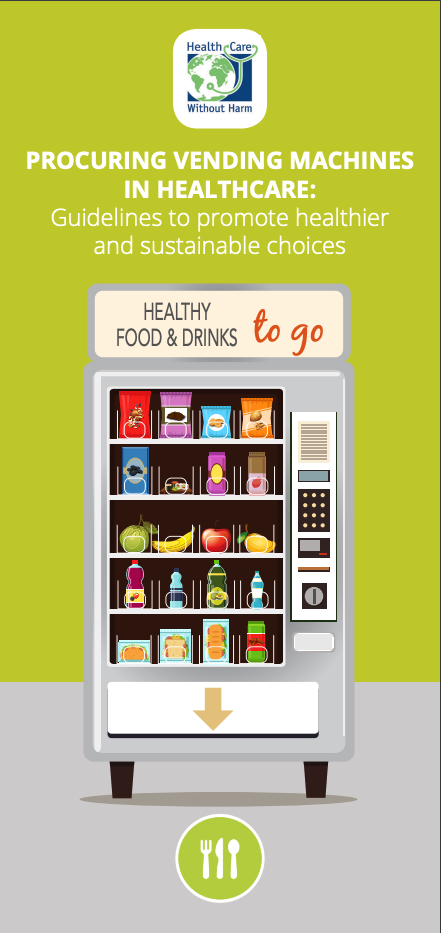Healthcare facilities (primarily hospitals) operate large-scale food services providing meals, snacks, and beverages to patients, visitors, and staff. Though historically hospital food has had a poor reputation and been heavily criticised, many hospitals are now taking a more proactive approach to improve the quality and sustainability of their food service whilst meeting key dietary guidelines.
One area of food service in healthcare that might be overlooked, however, is vending machines. HCWH Europe has released a new publication with case studies and guidelines for healthcare organisations looking to procure healthier, more nutritious, and more sustainable vending services.
Procuring vending machines in healthcare: Guidelines to promote healthier and sustainable choices

Most vending machines - including those in hospitals – often stock packaged foods and beverages that are high in calories, sugar, saturated fat, and/or sodium. Usually positioned in high visibility areas, sometimes these machines provide the only available food onsite – especially outside of food service hours.
Vending machines have environmental impacts - often running 24 hours a day, all year round – this continuous operation consumes on average 2,700 kWh of energy annually per machine. They often provide disposable utensils and packaging creating additional non-recyclable waste, particularly plastic.
Vending services provided in healthcare facilities should offer healthier and more diverse choices with reduced levels of fat, sugar, and salt. - HCWH Europe recommendations
Giving an overview of applicable EU legislation and the opportunities to leverage procurement criteria, this new publication from HCWH Europe also contains case studies from the UK, Ireland, and Spain, as well as some concluding recommendations to promote healthier and sustainable choices in vending machines found in healthcare.